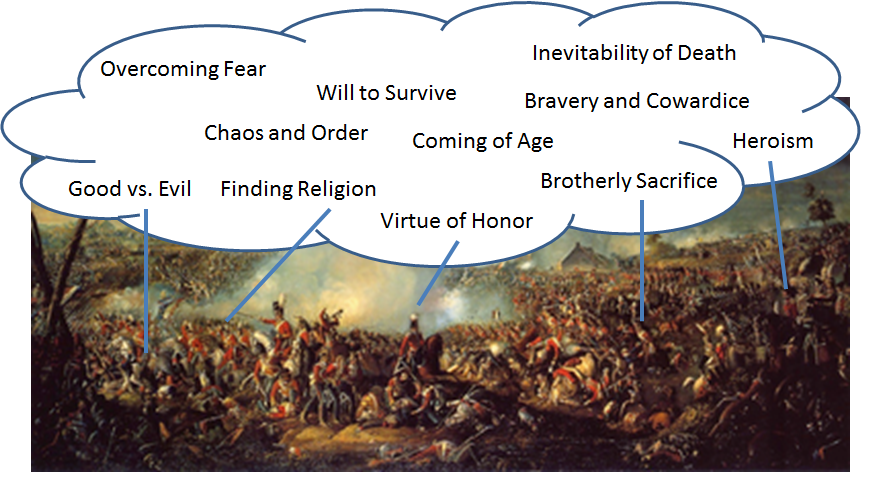Long-time readers of this blog have noted that I’ve explored four of the five components of fiction—character, plot, setting, and style. There’s been quite a clamoring for me to complete the set, and today I’ll do so by discussing theme.
You can think of the theme of a story as the central topic, the universal idea or message, the overall lesson or moral. I’ve said before that all stories are about the human condition and that’s because we choose human themes. Until we deal with other sentient entities, that’s all we really have.
 Here’s another way to think about theme. It’s easy to identify the characters, plot, and setting of a story. Think of those as the ‘real life’ parts of the story, the parts you can visualize with ease. Now imagine key parts of that ‘real life’ getting mapped to a different plane, a place of Platonic ideals. Imagine lines connecting specifics in the story to generalizations in the other plane, concrete items linked to a realm of abstract concepts.
Here’s another way to think about theme. It’s easy to identify the characters, plot, and setting of a story. Think of those as the ‘real life’ parts of the story, the parts you can visualize with ease. Now imagine key parts of that ‘real life’ getting mapped to a different plane, a place of Platonic ideals. Imagine lines connecting specifics in the story to generalizations in the other plane, concrete items linked to a realm of abstract concepts.
For example, an old woman in a story is linked to the idea of Age itself. A young man going through his first experience of adulthood is linked to the idea of Coming of Age. The growing love between two characters maps to the idea of Falling in Love. You get the idea.
There needn’t be only one theme in a story, and often you can identify more than one. Also, it isn’t necessary for the writer to spell out what the story’s themes are; in fact it’s much better to allow readers to infer them.
Let’s identify some themes in famous literature. Take 1984 by George Orwell. It includes themes such as ever-increasing government control, the loss of individual freedom, and the dangers of advanced technology.
Consider Love Story by Erich Segal. Some of its themes include the idea of opposites being attracted to each other, the sacrifices made for love, the rebellion of a child against his parents, and the notion of love conquering all adversities.
One of my favorites, 20,000 Leagues Under the Sea by Jules Verne, also contains themes. These include the dangers of advanced technology, aiding the oppressed against oppressors, and the notion that revenge can drive you insane.
Is it possible to write a story without a theme? I’m not sure. Even if the writer has no particular theme in mind, readers and critics can likely discover themes the author didn’t intend, but are nevertheless present.
For a beginning writer who’s overwhelmed by the amount of writing stuff to remember, I suggest concentrating on character, plot, and setting (in that order of importance) without focusing on theme or style as much. Chances are a well-written story will have one or more themes, even if the writer doesn’t consciously strive toward one.
As always, post a comment if you agree, disagree, remain confused, or are just thankful that all five components of fiction have finally been addressed by—
Poseidon’s Scribe
